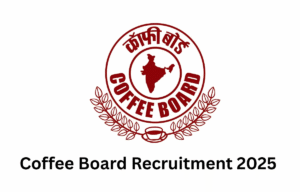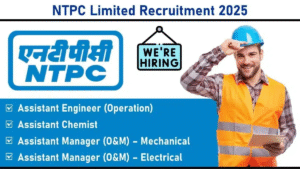Navigating the Application Process: Your Step-by-Step Guide to Securing a Sarkari Naukri
The allure of a “Sarkari Naukri,” or government job, holds a special place in the aspirations of millions across India. Synonymous with stability, respectable pay, comprehensive benefits, and immense social prestige, these coveted positions offer a secure career path in an often volatile job market. However, the journey to securing a government job can seem daunting, characterized by rigorous examinations and multi-stage selection processes. This essay aims to demystify this path, providing a step-by-step guide to help aspiring candidates navigate the application process effectively and confidently pursue their dream of a government career.

Step 1: Research and Self-Assessment – Laying the Foundation
The initial and most crucial step is thorough research and honest self-assessment. India’s government sector is vast, encompassing diverse opportunities across central and state departments, public sector undertakings (PSUs), banking, railways, and defense. Candidates must first identify which sector and specific roles align with their educational qualifications, skills, and career aspirations. This involves meticulously studying official recruitment notifications released by bodies like the UPSC (Union Public Service Commission), SSC (Staff Selection Commission), IBPS (Institute of Banking Personnel Selection), RRB (Railway Recruitment Boards), and various State Public Service Commissions. Pay close attention to eligibility criteria such as age limits, educational qualifications, and any specific experience requirements. Understanding these nuances from the outset saves valuable time and directs efforts towards achievable goals.
Step 2: Syllabus and Exam Pattern Mastery – Your Blueprint for Success
Once a target job is identified, the next critical phase involves an in-depth understanding of its syllabus and examination pattern. Every government exam has a unique structure, often comprising multiple stages like preliminary exams, main exams, skill tests, and interviews. Download the official syllabus and previous year’s question papers. Analyze the weightage given to different subjects (e.g., General Awareness, Quantitative Aptitude, Reasoning, English Language, subject-specific knowledge). This detailed analysis acts as your blueprint, helping you prioritize topics, identify your strengths and weaknesses, and allocate study time efficiently. A clear grasp of what will be tested is paramount to effective preparation.
Step 3: Crafting a Robust Study Plan – Discipline and Consistency
With the blueprint in hand, the next step is to create a disciplined and realistic study plan. This isn’t merely a timetable but a strategic allocation of time for each subject, factoring in revision, practice, and breaks. Incorporate daily reading of newspapers for current affairs, which are vital for almost all government exams. Choose reliable study materials – NCERT books form the foundation for many civil services exams, supplemented by standard reference books and reputable online resources. Consistency is key; adhering to your study plan, even on challenging days, builds momentum and ensures comprehensive coverage of the vast syllabi. Whether opting for self-study or coaching, a structured approach is non-negotiable.
Step 4: Practice and Performance Evaluation – The Path to Improvement
Mere studying is insufficient; rigorous practice and continuous performance evaluation are indispensable. Solving previous year’s question papers helps in understanding the exam’s pulse, question types, and time constraints. More importantly, regularly attempting mock tests is crucial. Mock tests simulate the actual exam environment, allowing candidates to refine their speed, accuracy, and time management skills. After each mock test, a thorough analysis of your performance is vital. Identify areas where you consistently lose marks, understand the reasons behind errors (conceptual gaps, silly mistakes, time pressure), and then dedicate focused effort to improve those weak spots. This iterative process of practice, analysis, and improvement is what truly sharpens your competitive edge.
Step 5: The Application Form – Precision is Key
The application form, though seemingly administrative, is a critical hurdle. Many promising candidacies are derailed due to errors in filling out the online application. Ensure every detail – personal information, educational qualifications, category, and preferences – is entered accurately. Double-check all uploaded documents (photographs, signatures, certificates) meet the specified size and format requirements. Timely submission is also paramount; avoid last-minute rushes that can lead to technical glitches or missed deadlines. A precise and error-free application ensures that your hard work in preparation doesn’t go in vain before the exams even begin.
Step 6: Acing the Interview/Skill Test – The Final Hurdle
For many government jobs, particularly at higher levels, a personality test or interview is the final stage. This round assesses not just your knowledge but also your communication skills, confidence, presence of mind, and suitability for the role. Stay updated on current national and international affairs, and be prepared to articulate your opinions thoughtfully. Practice mock interviews to gain confidence and refine your responses. For roles requiring specific skills (e.g., typing for clerical positions, physical efficiency for uniformed services), dedicate sufficient time to practice and meet the prescribed standards. This final stage is where your overall personality and readiness for public service are evaluated.
Conclusion
Securing a “Sarkari Naukri” is a marathon, not a sprint. It demands unwavering dedication, meticulous planning, and relentless perseverance. By systematically approaching each stage – from initial research and self-assessment to mastering the syllabus, crafting a robust study plan, engaging in rigorous practice, ensuring precise application, and confidently facing interviews – aspiring candidates can significantly enhance their chances of success. Embrace the journey with patience and a positive mindset, and the dream of serving the nation through a government job can indeed become a tangible reality.




















